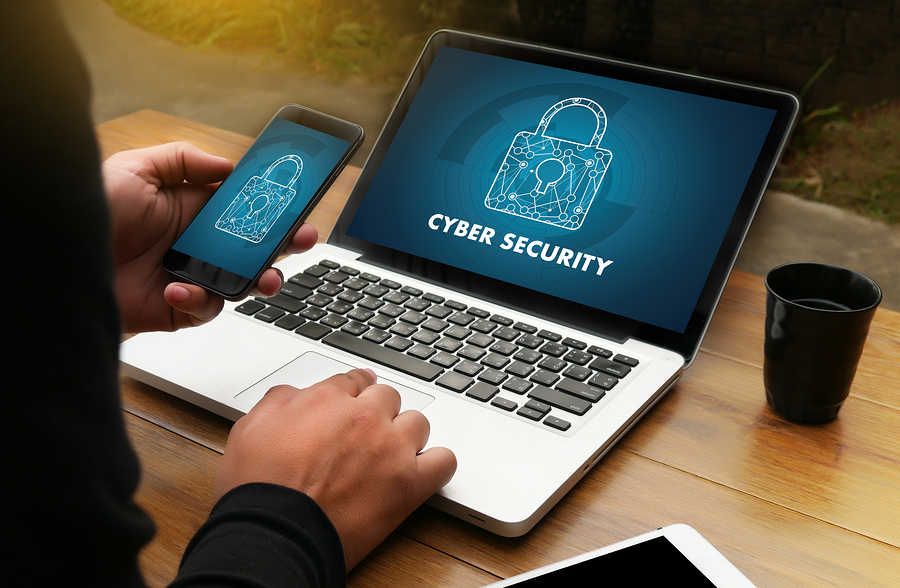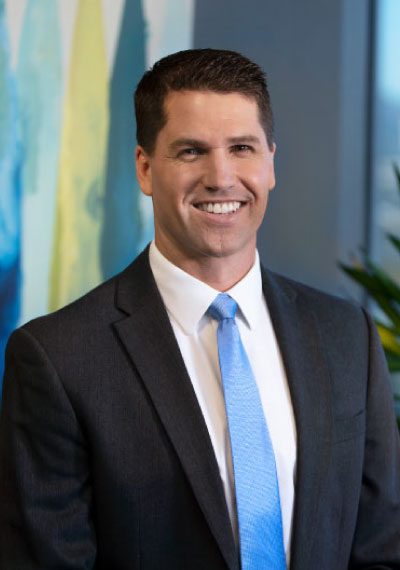On March 22, CCMI hosted a Cyber Security Breakfast with Jim Stickley, CEO and Founder of Stickley on Security. Mr. Stickley, a cyber security expert with extensive experience, shared strategies for keeping personal information safe and secure in an ever-changing cyber-environment. He first answered the question of why there are so many online hackers and why the cyber security industry is so big with this quote:
“Cyber Crime is a growth industry. The returns are high and the risks are low.” – McAfee
Here are some of the takeaways from Mr. Stickley’s presentation:
Mr. Stickley covered a variety of ways to prevent breaches through your personal and work email because 97% of all data breaches occur through email.
Links
- Be cautious when clicking on links from an email address you do not recognize.
- Hover your cursor over a link before you click it. The actual destination of the link will appear and you can see where the link will take you. Hackers often disguise the way the link is shown in the email message, but by hovering over the link you will be able to determine where the link will actually take you.
Attachments
- Any type of attachment could contain malware. Use caution when opening attachments that you are not expecting.
- If you doubt the validity of an email, call the sender to confirm they intended to include a link or added an attachment file to the email.
Sender
- Hackers have become extremely good at making emails look like they are coming from a trusted source. Only open the email if you are expecting it from a trusted source.
- The best way to protect yourself is to remain cautious and to never fully trust an email. Always remain suspect of an email until you have proven otherwise even if it comes from family or friends.
Unsubscribe
- The unsubscribe button at the bottom of emails can also be used maliciously. If you no longer want to receive emails from a particular address, you should block the email address or set up your inbox to send those emails directly to the trash folder.
Compromised?
- Check https://haveibeenpwned.com/ to see if your email was stolen from a breached website. If you find that your email has been stolen from a website, you should change your password if you haven’t already.
The primary goal of most hackers is to gain control of your computer to access your data. Once your computer is compromised, it is very difficult to recover.
Mr. Stickley also discussed a variety of other topics to keep your personal information safe.
- Consider putting a piece of tape over your webcam when not in use. Hackers have been able to spy on victims through their webcams without the victim’s knowledge. This can be prevented with a simple piece of tape that can be removed when the webcam is needed.
- Make sure all your software is up to date with the latest patches and updates. Most of these updates contain security upgrades and are important for maintaining your computers defenses against hackers. Mr. Stickley cited Adobe products as one of the most hacked products that should be updated frequently.
- Ransomware encrypts files on your computer and asks you to pay a fee to get your files back. Backing up your files regularly would allow you to bypass the ransomware. If your computer were to become encrypted, you could wipe your computer clean and restore your files using a backup.
- If you use an external hard drive to back up your computer, make sure to disconnect it from your computer after the backup is complete. If a hacker encrypts your computer files while your external hard drive is still connected, it may be subject to encryption as well.
- You should never use the same password twice. Mr. Stickey suggested using a core password and adding additional characters to the password based on the website. For example, if you were creating a new password for your account at google.com and your core password is abc123 (NOTE: this is not a recommended password, it is only used for an example), then you could add the first two letters of the website to the end of your core password. Your final password would be “abc123go”. Having a different password for each website is important and this is one way to easily remember each unique password. Your core password should be strong, with at least 8-12 characters, including upper and lower-case letters, numbers, and symbols.
- Mr. Stickley suggested that using apps on a tablet or phone are more secure than using your desktop or laptop computer. Apps are generally self-contained and many times the programs on our computers are not. This does not mean that apps are impervious to hackers, it just means apps cannot access data from other apps or parts of your phone or tablet.
Keeping your personal financial information secure should be an area to constantly improve and learn in a changing cyber environment. By implementing some of the suggestions above you can make it harder for hackers to gain access to your computer and your personal information. So, what will you do today to protect your financial information?
CCMI provides personalized fee-only financial planning and investment management services to business owners, professionals, individuals and families in San Diego and throughout the country. CCMI has a team of CERTIFIED FINANCIAL PLANNERTM professionals who act as fiduciaries, which means our clients’ interests always come first.
How can we help you?






